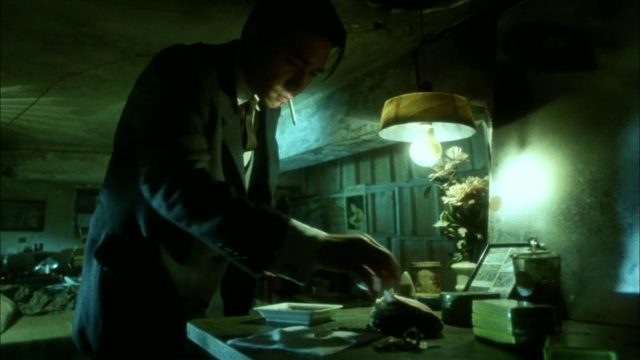Criterion Prediction #236: Days of Being Wild, by Alexander Miller

Title: Days of Being Wild
Year: 1990
Director: Wong Kar-Wai
Cast: Maggie Cheung, Leslie Cheung, Andy Lau, Jacky Cheung
Synopsis: Days of Being Wild centers on a slick womanizer, Yuddy (Leslie Cheung), who strikes a volatile relationship with Li-Zhen (Maggie Cheung), whom he soon leaves for cabaret dancer Mimi (Carina Lau). Mimi’s also caught the eye of Yuddy’s best friend, Zeb (Jacky Cheung).
Meanwhile, Yuddy is torn between his adoptive mother (a retired prostitute) and his birth mother, whom he discovers is a Filipino aristocrat.
Critique: Whenever I watch a Wong movie, I feel like I’m drunk. It’s fabulous what an effective filmmaker he can be when he’s pressing those incalculably impactful emotional buttons while Christopher Doyle’s camera is whirring alongside. Like so many endeared filmmakers, my favorite Wong Kar-Wai film is usually the one I’m currently watching, or have most recently seen. However, when posed with the question, I almost always return to Days of Being Wild. It’s the perfect blend of the director’s hallmarks adjacently bursting with his splashy artistic spontaneity and contrasting sensibilities. The romanticized nostalgia, the nostalgic romanticism, the fleeting transience of time as well as its tranquility; it’s all a driving force and, in Days of Being Wild, it’s recently taken establishment. Yet, Wong Kar-Wai rolls out the film as if he’s been at it for years. The hazy clarity of the sixties setting has the damp atmosphere of a far-gone memory, recalling specific elements, and cultural intonations.
The women are clad in floral dresses, fiddling with pearl necklaces; the men, often sporting dress slacks, short-sleeve button-ups and Hawaiian shirts, trying to keep their composure and slick veneer despite the oppressive heat. It’s an elemental movie. While the impulsive kineticism lurches out at sporadic junctures, Days of Being Wild is at its most comfortable when its characters are lounging about in an almost composed manner contending with the elements. The pace is self-sustained and sparks up when the time is right; it’s one of Wong Kar-Wai’s more measured films much to its benefit with a more controlled aesthetic. There’s this humid air of suggestion; the sexual and emotional repression falls in tune with the sixties atmosphere, which makes the occasional outbursts reverberate all the more. The ennui of the Hong Kong handover hadn’t quite settled in the air yet, a restless feeling that would fuel the directors more kinetic subsequent features (Chungking Express, Fallen Angels) here. The more disparate nihilism is on the back burner and this subordinate cynicism makes Days of Being Wild pulse rather than pop. The contextual rift that exists in Wong’s cinema puts a dividing line in his work, his period films, outside of his wuxia masterpiece Ashes of Time, In the Mood For Love, 2046, are on a slightly different spectrum from Fallen Angels, and Chungking Express. But Days of Being Wild retains the best of both of these worlds with a confidence that isn’t the by-product of a lucky up-and-comer but an assured talent falling into his artistic groove and finding collaboration with an equally important player (Doyle) in realizing his singular vision.
Why It Belongs in the Collection: This isn’t the first time Wong’s appeared in this column and I’m sure it won’t be the last. Over the years we’ve called out Happy Together (CP #95), Ashes of Time (CP#169) and Fallen Angels (CP#214), while clamoring for an upgrade of Chungking Express.
With so many rumors in forums buzzing about Criterion’s potential inclusion of all of Wong’s work, it almost seems like a cheat to write about his movies at this point (its why I opt out of dedicating a week’s entry to a Wes Anderson title). But Days of Being Wild often feels like a secondary title in the director’s oeuvre when it’s just as vital and invigorating as something like In the Mood for Love, a longstanding and early Criterion release.





























